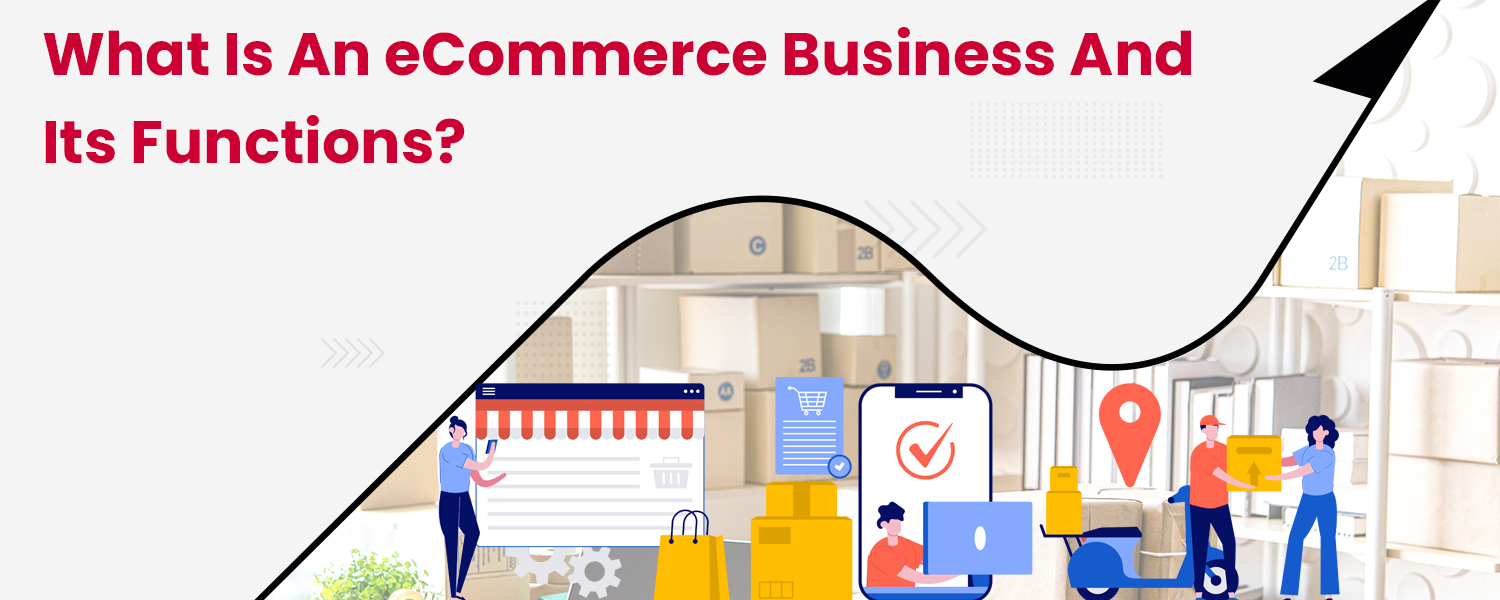In today’s hyperactive world, where technology has become part and parcel of life, conventional shopping norms have dramatically evolved. The spike in internet users on a global scale and the cheap availability of the internet have paved the way for the rise of a plethora of eCommerce brands and enterprises. Not only are these brands increasing quickly, but they are also gaining success with the kind of innovative ideas they are pitching in the industry.
According to a market estimate, eCommerce will account for 20.4% of all retail sales worldwide by the end of 2023. The entry-level products aimed at the new-age client base would be one of the drivers behind the increased share of these online brands in the mainstream market.
Well, one can say without a doubt that eCommerce has completely transformed the way business is conducted around the world, and it will continue to change the existing norms with the ongoing updation in technology. To carry your business to wider horizons, all you need is up-to-date information about eCommerce, its several components, its revenue model and how significant it is for the booming Indian economy.
To know everything about the changing norms of the eCommerce industry, stay tuned to this blog until the very end to get all your doubts clear about the growing eCommerce hustle!
Why is eCommerce Important?
eCommerce is essential to the evolving business in the country because it has transformed the way businesses operate and the way people shop. It allows businesses to reach a wider audience, reduces costs, and provides customers convenience and flexibility in their shopping experience. Conventional brick-and-mortar stores restrict businesses to a particular geographic area which further put obstacles for these businesses to reach a wider audience.
When it comes to running online stores, you get an open gateway to the diverse consumer base, without any geographic barrier and hassle to open a physical store in your market of interest. Any small-scale or regional business can go global in just a matter of time with the powerful force of eCommerce.
eCommerce has also allowed small-scale businesses to compete with big fishes in the industry. Overall, eCommerce has revolutionized the world of retail like never before and has made the global market more accessible to multiple players by cutting off the hegemony of big players.
What Are The Components of eCommerce?
The components of eCommerce can be broadly classified into three categories:
- Technology Infrastructure: This includes the hardware and software necessary to build and operate an eCommerce website, such as servers, web development platforms, payment gateways, and security protocols.
- Business Operations: This includes the processes and procedures necessary to run an eCommerce business, such as inventory management, order fulfillment, customer service, and marketing.
- Consumer Interface: This includes the user interface and experience of an eCommerce website, such as the design, layout, navigation, product information, pricing, reviews, and checkout process.
Other important components of eCommerce include logistics and supply chain management, legal and regulatory compliance, data analytics and optimization. Each of these components plays a pivotal role in the success of an eCommerce business and must be carefully planned and executed to provide a seamless and satisfying online shopping experience for customers.
How eCommerce Business Works?
eCommerce businesses operate by selling products or services online through a website or mobile app. Customers browse product listings, add items to a cart, and checkout by providing payment and shipping information. The eCommerce platform processes the payment, sends a confirmation email to the customer, and notifies the seller to ship the product. The seller then ships the product and provides tracking information to the customer.
Functions of eCommerce for Online Sellers
Marketing Activities, Supply Chain Management, and Financial Management are the 3 main functions of eCommerce. In eCommerce, the store website plays an important role, as it is the most visible part of digital selling. The sale occurs at the store’s website, but you need to coordinate other functions to run a business in the online world.
Marketing Activities
It’s important to do marketing of your online store and the products you sell to promote business and increase sales. Before performing any marketing activity, you need to do market research and develop a brand strategy. During the research, you will get to know what your customers want and how you can build your store’s unique brand identity. While carrying out different marketing activities, digital marketing skills and communication skills play a significant role in enhancing your sales conversions.
Financial Management
Proper finance in the business works as a strong pillar for your company’s growth. For managing payments of your online store, you need financial management systems, as they will assist you in tracking your store’s sales performance. FMS will also help track your costs and how you can cut down the cost to remain profitable. Of course, it would help if you had financial guidance.
Supply Chain
Each order that you get must physically move from where it is stored to the buyer’s location. So, if you want your product to reach the warehouse successfully and to the buyer’s place, you must have a sound supply chain system.
What is the Revenue Model in eCommerce?
The revenue model in eCommerce refers to the different ways eCommerce businesses generate revenue. Here are some common revenue models used in eCommerce:
- Product sales: The most common revenue model in eCommerce is product sales. eCommerce businesses earn revenue by selling products online, typically at a markup from their cost.
- Subscription-based model: Another popular revenue model is subscription-based. In this model, customers pay a recurring fee to access a product or service, such as a streaming service like Netflix or a subscription box service like Birchbox.
- Commission-based model: Some eCommerce businesses earn revenue through commission-based models. In this model, the business takes a commission on each sale made through its platform. This is commonly used in marketplace platforms like Etsy, Amazon, and eBay.
- Advertising-based model: eCommerce businesses may also generate revenue through advertising. In this model, the business sells advertising space on its website or mobile app to other businesses.
- Affiliate marketing: Affiliate marketing is a revenue model where the eCommerce business earns a commission for promoting and selling another company’s products. The eCommerce business promotes the products on its website or mobile app and earns a commission for each sale made through its referral link.
- Data monetization: eCommerce businesses can also earn revenue through data monetization. In this model, the business collects and analyzes customer data to provide insights to other businesses. This is commonly used in industries like marketing and advertising.
Indulge in The eCommerce World in 2023
Are you ready to sell your product online? If you are excited to set up your online kingdom, study the above facts about eCommerce and its importance in today’s era. We hope this article will let you know why eCommerce business is a trendsetter channel and how it will let you grab the best opportunity!
Once you’ve set up your online store, you can also connect with NimbusPost for logistics partners for managing your shipments. As NimbusPost has brought 27+ courier partners on its platform and covers more than 29,000 pin codes, you will surely be able to serve customers across most of the locations.
What are the Advantages and Disadvantages of eCommerce?
Pros of E-commerce |
Cons of E-commerce |
|---|---|
| Convenience: Customers can shop from anywhere and anytime, without physically visiting a store. | Cybersecurity threats: E-commerce sites are vulnerable to hacking, data breaches, and other online threats. |
| Greater reach: Online businesses can reach a global audience, without geographic limitations. | Lack of personal touch: The absence of face-to-face interaction can make it challenging to build customer relationships and loyalty. |
| Lower overhead costs: Online stores don’t have to worry about expenses like rent, utilities, and salaries for sales staff. | Shipping and fulfillment challenges: E-commerce businesses must deal with shipping logistics, order tracking, and handling returns and exchanges. |
| 24/7 availability: Customers can shop at any time, even outside of regular business hours. | Digital divide: People who lack access to the internet or technology may not be able to use e-commerce sites. |
| Easier comparison shopping: Online shoppers can easily compare prices and features of products across multiple websites. | Dependence on technology: Technical glitches, website crashes, and other tech-related issues can impact the shopping experience. |
| Data-driven insights: E-commerce businesses can collect valuable data on customer behavior, preferences, and purchasing patterns. | Returns and refunds: Processing returns and refunds can be time-consuming and costly for online businesses. |
| Flexibility: Online businesses can quickly adapt to changes in demand, inventory, and pricing. | Intense competition: With millions of e-commerce sites out there, it can be tough to stand out and attract customers. |
| Potential for scalability: E-commerce businesses can quickly scale up their operations, without needing to invest in physical infrastructure. | Product quality concerns: Customers may be hesitant to buy products online, as they can’t physically inspect or test them beforehand. |
FAQs
What is not the function of eCommerce?
Marketing is not the function of eCommerce. Since eCommerce entirely deals with the selling and buying of goods and services over electronic mediums, it does not cover the process of marketing and advertising products among targeted audiences.
How Does Marketing Impact The Online Shopping Experience?
The sole purpose of marketing in business is to make your product reach the targeted audience. In eCommerce, digital marketing is a factor that helps online brands reach their potential consumer base by promoting and advertising their products and services via social media platforms.
The major role of marketing in enhancing the online shopping experience is attracting and retaining customers, building trust for the brand, personalization, creating a sense of urgency among buyers, and so on.



